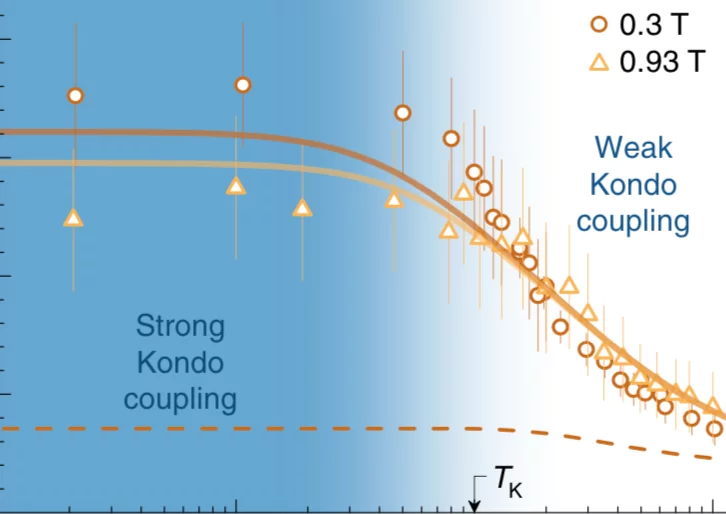The Kondo effect, an eminent manifestation of many-body physics in condensed matter, is traditionally explained as exchange scattering of conduction electrons on a spinful impurity in a metal. The resulting screening of the impurity's local moment by the electron Fermi sea is characterized by a Kondo temperature TK, below which the system enters a strongly coupled regime. In recent years, this effect has found realizations beyond the bulk-metal paradigm in many other conduction-electron systems, such as in quantum dots in semiconductor heterostructures and nanomaterials, in quantum point contacts, in graphene and in topological insulators, and has also been predicted for three-dimen- sional Dirac and Weyl semimetals. Here, we report an exper- imental observation of Kondo screening by charge-neutral quasiparticles. This occurs in a charge-insulating quantum spin liquid, where spinon excitations forming a Fermi surface take the role of conduction electrons. The observed impurity behaviour therefore bears a strong resemblance to the con- ventional case in a metal. The discovered spinon-based Kondo effect provides a prominent platform for characterizing spin liquids in the general context of utilizing impurities as in situ probes of host electron states, and offers a unique way to manipulate these enigmatic states.
Facility: SμS
Reference: M. Gomilšek et al, Nature Physics, s41567 (2019)
Read full article: here



